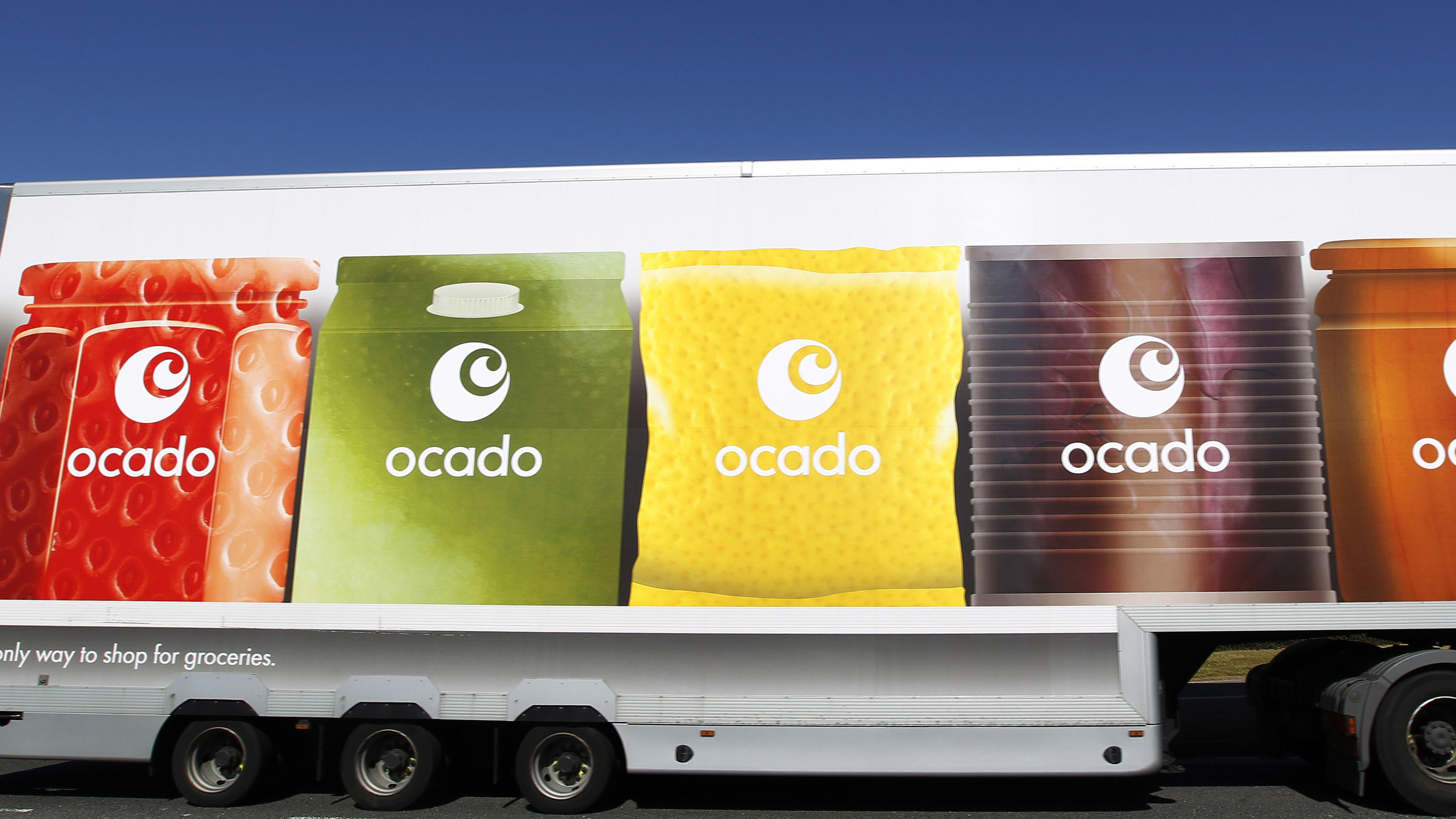Ocado signs £170m deal with Morrisons
Morrisons supermarket confirms a £170m 25-year tie-up with Ocado, sending the online grocer’s shares soaring and potentially enraging its former exclusive partner Waitrose.
If Ocado and Morrisons are unlikely bedfellows, then Waitrose is the metaphorical equivalent of an exasperated housewife in a relationship whose best days are in the past.
And after swirling rumours of infidelity, this morning Ocado and Morrisons confirmed a £170m tie-up with Ocado, sending the online grocer’s shares soaring by 25 per cent and seemingly enraging its former exclusive partner Waitrose.
Waitrose is now seeking legal advice over the 25-year deal between Ocado and Morrisons.
From 2014, Ocado will sell Waitrose-branded goods as well as its own products through its own website, while also providing the technology and distribution network for Morrisons own online presence.
It also means Morrisons – which until now has lacked the capabilities for home delivery, despite being Britain’s fourth largest retailer – will from next year deliver to homes across the country, potentially using Ocado’s vehicles, warehouses, technology, staff and market intelligence.
Game-changer
Under the terms of the agreement, Morrisons will pay Ocado as much as £170m to take over the online retailer’s distribution centre as well as paying a licence and integration fee. It will also invest a further £46m to expand distribution centre in Dordon to accommodate Morrisons range of products.
In return Morrisons has agreed to pay Ocado 25 per cent of any positive earnings from its website, which reduces to 10 per cent after 15 years. It expects the online operation to start making money by 2018.

It will also pay an annual fee towards research and development at Ocado of £8m for the first two years, and one third of Ocado’s annual research and development spending afterwards, capped at £8m.
It is an unquestionable game-changer for both parties. Morrisons, who until today had little substantial digital presence, can now promise customers home delivery in a world where increasing numbers of shoppers are drifting online.
Ocado has the long-term security of a new business model, which will reassure shareholders who have been asking questions of its future as it attempts to battle larger supermarket rivals.
Tim Steiner, Ocado’s chief executive, has described it as a “validation” of their business.
New relationship
And in case there was any doubt as to who would wear the trousers in this new arrangement, Morrisons Chief Executive Dalton Philips could not have been more explicit on the terms of the new arrangement.
“This is a Morrisons website, it’s Morrisons food in a Morrisons van with a Morrisons driver. It’s Morrisons the whole way through. [Ocado] are simply providing the technology and the platform.”
The announcement sent Ocado shares up 25 per cent to 251p. Morrisons shares were 1.5 per cent higher at 287p.
What Ocado gains
Ocado launched in 2001 with a £46m cash injection from Waitrose that left it with a 40 per cent stake in the business. When it first launched, Ocado billed itself as solely a deliverer of Waitrose products.
But that has all changed. In recent years Waitrose has expanded its own direct delivery service, putting it in direct competition with the online retailer. Ocado sells Waitrose food, although for the last two years it has added products from foreign supermarkets to its range.
Around the same time, Waitrose sold off its 40 per cent stake and revamped its Waitrose.com site – making it less in allegiance with Ocado and more a direct competitor.
Proprietors hope that the deal will give a new shape and structure to Ocado’s business model which was coming under increasing scrutiny as Waitrose revamped its own digital presence and rivals such as Tesco, Asda and Sainsburys reinforced its home delivery services.
Waitrose anger
Waitrose says it has sought legal advice about whether there was any breach of the contract in the deal, which sees Waitrose sell food through Ocado until March 2017. It will then decide on the appropriate course of action.
The only certainty surrounding the pair’s future is its 10-year supply contract which lasts until 2020, with a break clause in 2017. Some analysts suggest that Waitrose will almost certainly initiate the break clause – or could even walk earlier if there is a break of contract.
A statement from Waitrose said: “We have asked to see the detail of the deal and the operating arrangements. Meanwhile, we have instructed lawyers so that we can get a clear and unequivocal view of the contract and examine what might constitute a breach. This process will take some time so we are unlikely to comment again in the near future.”
Ocado is not commenting on the deal. In a pre-prepared statement, Tim Steiner, the Ocado chief executive, said: “Our customers will see no change to the service they receive from Ocado as a result of this agreement.
“We will continue to source products under our long term agreement with Waitrose, and our customers will continue to benefit from the existing high levels of service, wide range of products and competitive prices that they currently enjoy.”